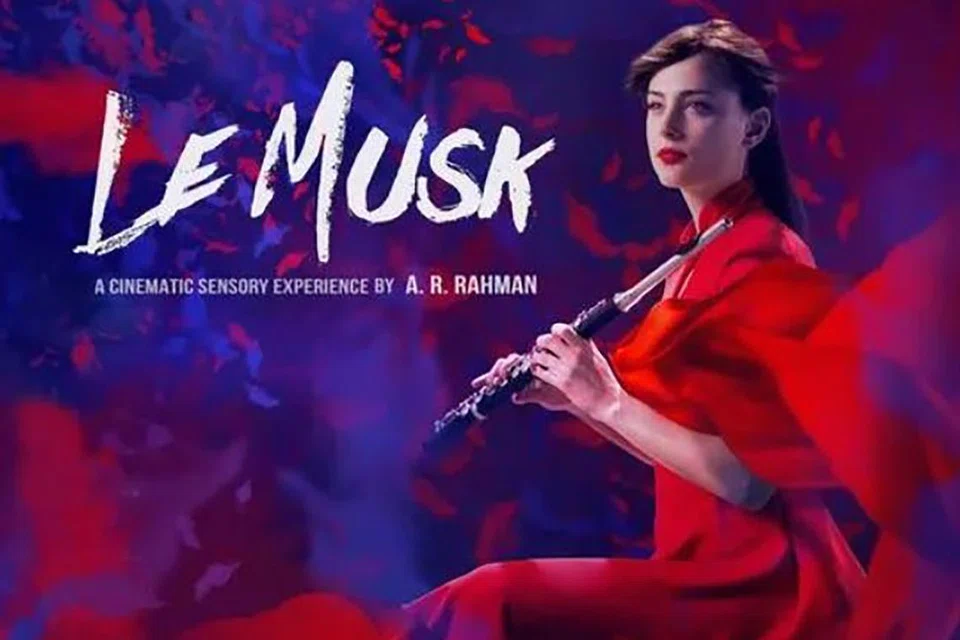A.R. Rahman is no stranger to reinvention. The musical maestro, who once redefined the soundscape of Indian cinema, has now stepped into the world of multi-sensory virtual reality with Le Musk, his directorial debut.
Billed as a “cinematic sensory experience,” the 37-minute VR film promises a heady blend of music, memory, motion and smell.
The movie’s plot is an undeniably bold idea. Juliet Merdinian, an orphaned Armenian heiress and musician, journeys through a surreal world, chasing down the olfactory signatures of three mysterious men who wronged her in her childhood.
The concept, which was originally ideated by Saira Rahman, Rahman’s ex- wife, explores how scent is intertwined with identity and memory. With such a premise, Le Musk had the makings of a sensorial triumph.
But the experience, at least for me, did not quite live up to its ambition.
For starters, the music was underwhelming. It’s almost heretical to say, given Rahman’s legendary status, but the compositions in the short film lack the emotional depth and innovation we often associate with his best work.
His score, in which sounds of the tabla and synths flutter in the background, never quite soars. It feels functional, even ornamental, rather than immersive or memorable.
Then there’s the technology itself. The film is experienced in Positron’s Voyager large pod-like red chairs, outfitted with haptic feedback, motion and scent dispersion. While theoretically fascinating, in practice, it was exhausting.
The VR headset is cumbersome, and its weight, especially over a prolonged session, had me fighting off a throbbing migraine.
Add to that the price: $40 for 37 minutes. That’s more than a full IMAX screening and a popcorn combo, with less than half the satisfaction.
Moreover, there was no discernible scent (I ensured my nasal airways were not blocked before I made this claim).
For a film so deeply anchored in the idea of smell as a trigger for memory and identity, the absence of any noticeable aroma left a gaping hole in the experience. Perhaps my pod was faulty, as I did not catch even one of the 12 distinct scents promised. Without that, the “multi-sensory” claim felt more like a marketing gimmick than reality.
Yes, Le Musk premiered at Cannes and played at festivals in Los Angeles and Toronto, and even superstar Rajinikanth called it “mind-blowing” and “one-of-a-kind.”
However, for an average audience member, especially someone curious but not particularly dazzled by tech for tech’s sake, the film leaves more questions than impact.
For all the technological speedbumps the world of cinema has traversed, this movie felt too amateurish for its time.
Yet, to be fair, Rahman deserves credit for venturing far from the comfort zone of mainstream Indian cinema.
Few artists of his stature would gamble their legacy on a speculative format, let alone as a debut director. His courage to do so is what keeps creativity alive, even when the end result feels undercooked.
Le Musk might not have succeeded in sweeping me off my feet – or my senses – but it does hint at a future where film is more than sight and sound.
If Rahman continues down this path, with sharper storytelling, more ergonomic gear and a sound that does his immense talent and legacy justice, his next multi-sensory experiment might be the one that truly sings.



